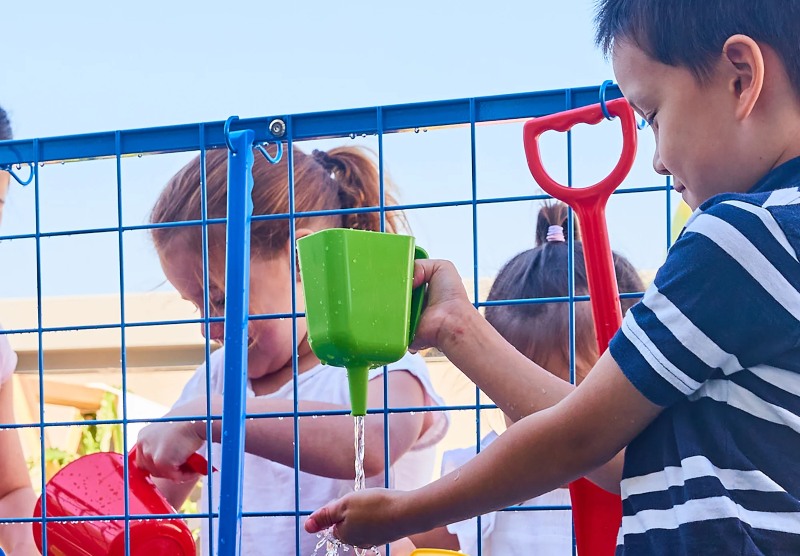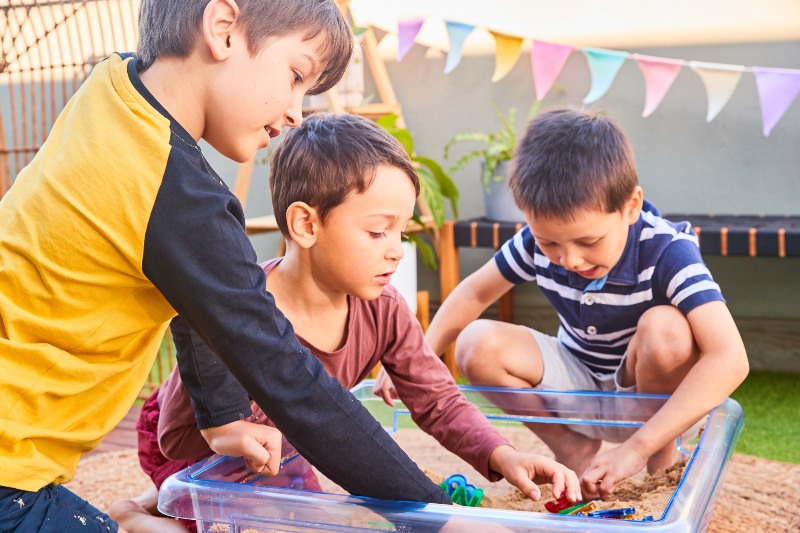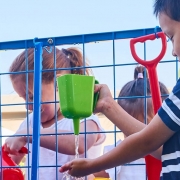Sensory Toys for ADHD
The Benefits of Sensory Play for Children with ADHD
Understanding the pivotal role of sensory toys in facilitating the development of children with Attention Deficit Hyperactivity Disorder (ADHD) and Autism Spectrum Disorder (ASD) is essential. Sensory fidget toys, often regarded merely as fun gadgets, are actually crucial tools that aid in managing stress, improve concentration, and help develop fine motor skills.
Sensory toys for ADHD and ASD include fidget cubes and fidget spinners, chewable items, threading and beading activities, tactile balls, resources for aiding focus, and wet or dry messy play. Not only are these instrumental in providing sensory feedback and helping with focus, but they also support educational growth by fostering an environment conducive to learning through play.
Read more in our blog on The benefits of Sensory Play for children with ADHD
The Importance of Sensory Toys for ADHD
Children diagnosed with ADHD or autism spectrum disorders often experience sensory processing challenges. This can manifest as either hypersensitivity (over-responsiveness) or hyposensitivity (under-responsiveness) to sensory stimuli.
Sensory ADHD toys are designed to help regulate their sensory input, which in turn helps them maintain a calm state and focus better on tasks. By keeping their hands busy, these toys help children improve their concentration and stay engaged in learning activities for longer periods.
Read more in our blog on How do fidget toys help autism?
Stress Relief and Emotional Regulation
The link between sensory play and emotional regulation is profound. Toys that cater to sensory needs can significantly alleviate stress and anxiety. For kids with autism and ADHD, play is a safe outlet for expressing and managing their emotions. Edx Education’s captivating mindfulness toys enrich play and learning as well as aid emotional regulation.
During stressful situations or transitions, which can be particularly challenging for children with autism and ADHD, having a sensory toy to interact with like our Number & Dot Bean Bags can provide a familiar and comforting focus point. This can help reduce anxiety and make it easier for the child to transition between different activities or focus on educational tasks.
Read more in our blog on Are fidget cubes good for ADHD
Understanding Sensory Preferences
Water play is a captivating and therapeutic form of sensory play that holds specific benefits for some children with ADHD. This type of activity not only provides soothing sensory stimulation but also serves as a fertile ground for enhancing various developmental skills. Water is inherently calming and can help children with ADHD regulate their emotions and maintain focus.
Read more in our blog on Exploring the benefits of sand and water play.

Although, children with sensory processing issues may react negatively to the unpredictability and often cold, wet nature of water-based activities. These sensory experiences can trigger discomfort or anxiety, making it essential to find suitable alternatives that still encourage sensory development and playful learning. Dry messy play provides a sensory-rich environment while respecting these unique sensitivities.

Types of Dry Messy Play
Dry messy play can include a variety of materials that encourage exploration and creativity without involving wet substances. Some popular options include:
- Sand Play: Sand can be used dry in a desktop tray or large tray. Children can dig, build, and sculpt with sand, using tools or their hands, which helps develop fine motor skills and proprioceptive awareness.
- Shells or Counters: Our Transparent Tactile Shells or any of the items in our range of Coloured Counters can create a visually stimulating play environment. You can add dry beans which will produce interesting sounds. They can be poured, scooped, and sorted, offering a range of activities that enhance hand-eye coordination.
- Play Dough: Homemade play dough offers a slightly dry alternative to shop bought. It can be rolled, cut, and shaped without sticking to the hands, providing a satisfying sensory experience for children who might be tactile defensive.
- Fabric Scraps: Offering a variety of textures, fabric scraps can be used for sorting, weaving, or crafting. This type of play helps children explore different sensations in a non-threatening way, promoting tactile discrimination and fine motor skills.

Enhancing Fine Motor Skills and Focus
Fine motor skills involve the use of small muscles in the fingers and hands. Developing these skills is crucial for children, as they affect a variety of everyday functions, including writing and buttoning clothes.
Sensory toys such as squishy balls, and the many items in our fine motor skills range promote children to use precise finger movements, which helps in strengthening these small muscles and improving hand-eye coordination.
Often the very act of busy hands manipulating these sensory toys for ADHD requires a level of focus that can be quite challenging for children with ADHD. By integrating sensory toys into play and learning, children can practise how to maintain focus over extended periods, a skill that is valuable both in academic settings and in daily life.
Read more in our blog on Can fidget toys help with anxiety?
Learning through Play: A Natural Approach
Play is a natural way through which children explore the world and learn new concepts. For children with ADHD and ASD, learning through play is especially beneficial. It allows them to engage in activities that match their learning style—kinesthetic, tactile, and dynamic. Educational theories strongly support the idea that when children are actively engaged and enjoying an activity, their learning is enhanced.
Sensory toys for ADHD and ASD are not just toys; they are essential tools that support sensory regulation, stress relief, focus, and learning through play. They offer practical solutions for parents and educators looking to enhance the developmental skills of children. By understanding and leveraging the benefits of sensory toys, we can create a more inclusive and effective learning environment for all children.
Incorporating these tools into daily routines and educational settings ensures that children with ADHD and autism can enjoy a fuller, more engaging learning experience. Sensory toys validate their unique needs and provide the support required to excel both academically and socially.
Learn more about How do fidget toys help? View our full range of sensory toys for ADHD and for children of all age groups, abilities and developmental stages here:
UK https://www.shopedx.co.uk or www.amazon.co.uk/edxeducation
USA – www.amazon.com/edxeducation
Author: Edx Education – Heather Welch



 Edx Education
Edx Education